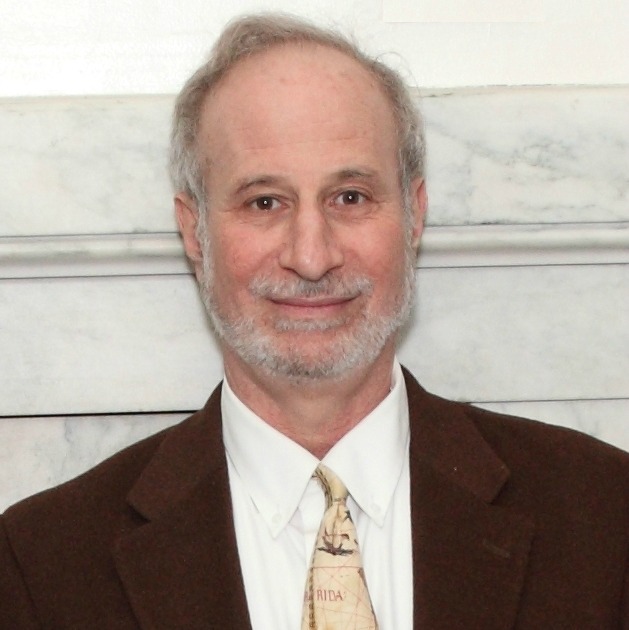

 When Felix Adler created Ethical Culture in 1876, he introduced something new into the world of religion. A religious movement devoted exclusively to ethical ideals devoid of supernaturalism, myth or doctrine was radical, but it did have its precursors. “Agnosticism” was coined just a decade before, and science in the period following the Civil War had reached the zenith of its prestige. Marxism had turned many into non-believers, and the higher criticism of the bible that flourished in Germany in the earlier parts of the century, and in which Adler was steeped, employed the tools of secular scholarship to confirm the human origin of the texts and the historical sequence of their authorship.
When Felix Adler created Ethical Culture in 1876, he introduced something new into the world of religion. A religious movement devoted exclusively to ethical ideals devoid of supernaturalism, myth or doctrine was radical, but it did have its precursors. “Agnosticism” was coined just a decade before, and science in the period following the Civil War had reached the zenith of its prestige. Marxism had turned many into non-believers, and the higher criticism of the bible that flourished in Germany in the earlier parts of the century, and in which Adler was steeped, employed the tools of secular scholarship to confirm the human origin of the texts and the historical sequence of their authorship.
These dynamics ensured that Ethical Culture was a product of its times, and one which educated elites, who no longer found the precepts of the traditional faiths credible, were open to accept. Ethical Culture was not alone. The scientific and rationalistic worldview had thinned out commitment to supernaturalism in several faiths, including Unitarianism and Reform Judaism. Decades before Ethical Culture, Auguste Comte’s Religion of Humanity created a movement that proclaimed the evolution of consciousness from religion to philosophy and then to the highest stage, science. Adler was conversant in Comte’s thought, and felt impelled to explain how Ethical Culture differed from it.
But Ethical Culture, which had thoroughly shed the accoutrements of traditional faiths that these modernizing religious movements retained, ensured the movement’s uniqueness even among those religious expressions that emerged from the same zeitgeist.
Changes in American society have made Ethical Culture’s distinctive edge more difficult to sustain. With regard to its activism and its social reform initiatives, Ethical Culture melded into the Progressive Era which began a decade and a half after its founding and lasted until the 1920’s. The New Deal ensured that government undertook much of the social welfare work that had been pioneered by volunteers, especially in the religious sector, including Ethical Culture.
On the philosophical side, Ethical Culture’s distinctiveness has also been harder to sustain. After Adler’s death, the philosophical idealism that Adler preached was functionally replaced by humanism and naturalism of which John Dewey was the major philosophical exponent. Variants of socialism attracted many progressives in the universities and beyond, who most likely would have found a place in Ethical Culture.
After World War II, sociologists and social psychologists, such as David Reisman and Eric Fromm, developed critiques of capitalism and industrial society that thrived in the same intellectual universe as Ethical Culture and diminished its distinctive edge.
In the 1960s, the New Left played a similar role, and more especially the humanistic psychology movement, led by such figures as Albert Ellis, Abraham Maslow, Carl Rogers and Frtiz Perls, captured the allegiance of a generation seeking for ideals that were not far removed from the outlook Ethical Culture espoused.
In the present moment, with more than 20 percent of the millennial generation proclaiming “no religion,” explicitly secular, atheist, and humanist organizations are flourishing. It is an increasingly crowded market, and so one can legitimately ask, what does Ethical Culture proffer that is distinctive? What does it provide that can legitimate its continuing existence?
It should be mentioned that while there is currently a proliferation of secular and humanistic organizations, some that more closely resembled Ethical Culture at its origins have diverged in matters of belief. The rationalistic ethos of Unitarianism and Reformed Judaism (as it was then called) are not so evident. While many Unitarian churches remain humanistic, others in that movement have acquired a New Age sensibility, while still others have become re-Christianized. And Reform Judaism, while becoming socially more progressive, has theologically moved further to the right lured by the triumphalist pull of Orthodox Judaism over the past 40 years.
Again, in these times, the distinctive character of Ethical Culture is more difficult to sustain and its diminished financial resources (in its early decades the Movement was underwritten by the upper classes) frustrate its efforts to more robustly publicize its efforts.
Yet, Ethical Culture retains elements that remain unique and make its continuance worthwhile, especially in these times when the broader culture is driven by dynamics—political, social, and economic—, which are so ominously anti-humanistic.
Clearly those inspired by Ethical Culture’s vision will comprise a small niche in the American fabric, yet contextually, we must realize this has always been true. Among elements of Ethical Culture that remain distinctive are the following:
In conclusion, no other organization, either of recent vintage or long standing, promotes this panoply of values and in a congregational setting through which Ethical Culture puts them into practice.
As Ethical Culture looks to the future, it rests on a proud historical legacy. As the only “religion of humanity” founded in the nineteenth century to endure into the twenty-first, Ethical Culture has served as a pioneering “gadfly” movement in American social history. Through its multitude of programs both internal to its congregational life, and moreover, in its extensive history of founding social justice and social service institutions, Ethical Culture has improved the well-being of countless thousands, while inspiring many more to live meaningful lives of deeper moral and social commitment.
It is a legacy rendered in Ethical Culture’s distinctive voice and it is a legacy most worthy of preserving.
Sign up for emails from AEU
Dear Mr. Joe Chuman:
While reading articles about Ethical Culture Society, some questions have arise. Understanding the difference with Liberalism; I am in need of a more clarify explanation of how not to confront the difference of Politics and religion. Could you please clarify these questions to me ?
*Does Republicans can join Ethical Culture Society ?
*Does a Member of Ethical Culture can keep its own Religion and Deity ?
*Does Ethical Culture members can be Prolife Advocates ?
I deal on daily basis with people of different believes(creeds) and political parties discussing the issues of Abortion, Euthanasia and Assisted Physician Suicide. These are very strong issues which I address in a very calmly manner; using the intellectual of the mind without the emotions of the heart.
I thank you for your time and attention to this matter. I really appreciate your help. Will be looking forward to read your reply.
Blessings and Peace,
AMS AMS